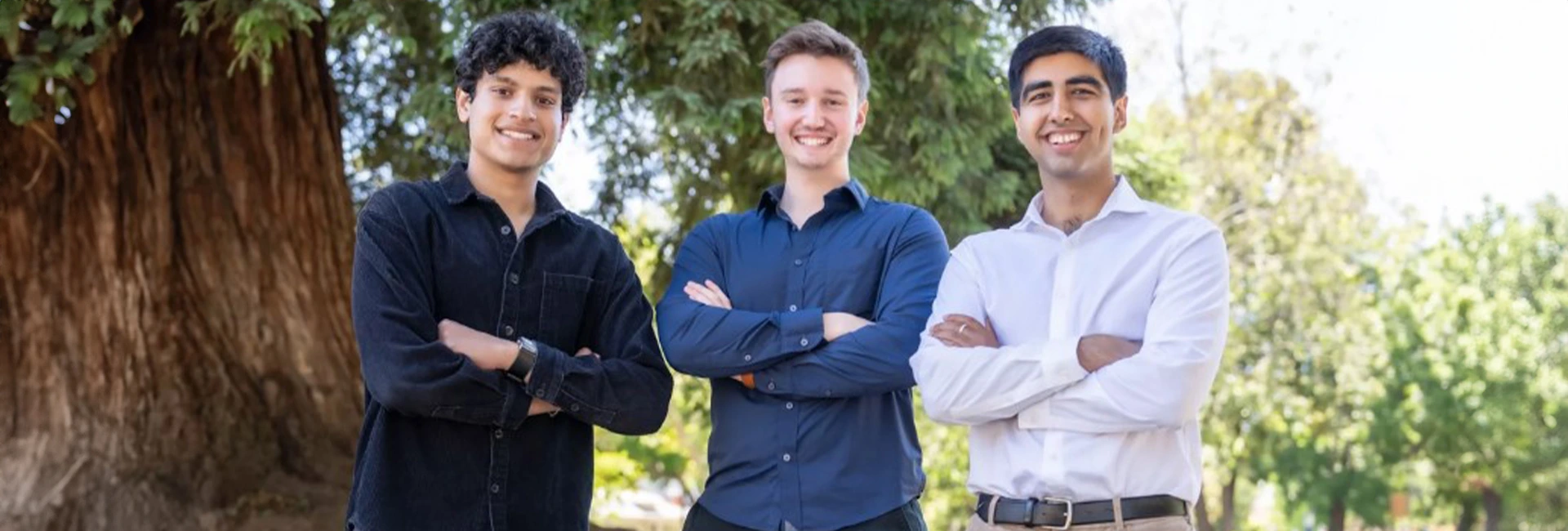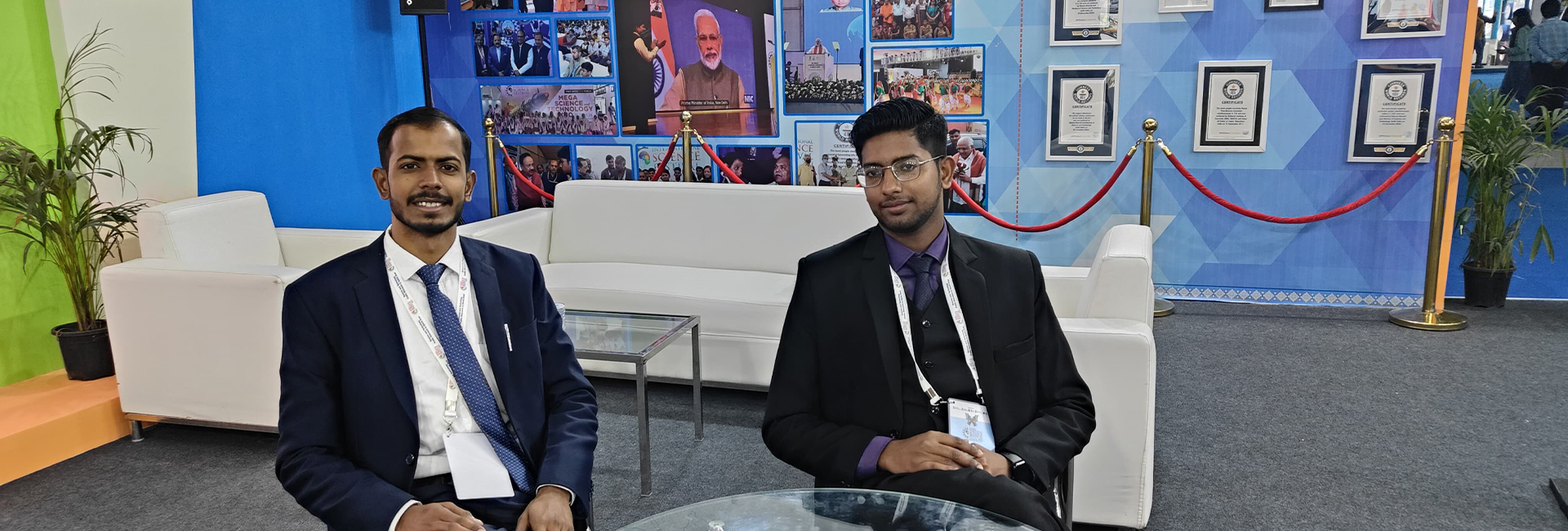(December 11, 2024) When Surya Midha, Adarsh Hiremath and Brendan Foody walked away from prestigious universities to chase a shared vision, they weren’t just defying the norms—they were making a pioneering move to transform the recruitment industry with AI. Surya, whose parents immigrated to the U.S. from New Delhi, was pursuing a bachelor’s in Foreign Studies at Georgetown University. Indian-origin Adarsh was enrolled in a concurrent bachelor’s and master’s program in computer science at Harvard University, while Brendan was studying economics at Georgetown.
Their bold decision to drop out of college in their second year wasn’t an easy one. However, the trio at the helm of Mercor, an AI-powered recruitment platform valued at $250 million, are proving that sometimes, the road less travelled leads to remarkable destinations. They have been named in Forbes 30 Under 30 in AI list. An overjoyed Brendan, reflecting upon their journey, remarked, “Beyond grateful for Adarsh H. and Surya Midha. It’s crazy to think we would have been graduating in the spring.”
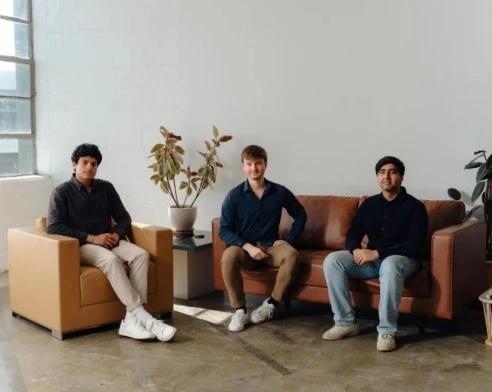
Adarsh, Brendan and Surya (left to right)
Brendan Foody serves as the CEO, Adarsh Hiremath as the CTO, and Surya Midha as the COO of Mercor, together leading the AI-powered recruitment platform to disrupt the $750 billion staffing industry.
Leading the charge to automate hiring
The 21-year-old visionaries have turned the recruitment industry on its head. Founded in 2023, their startup, Mercor, has already achieved milestones that most entrepreneurs can only dream of—$32 million in funding, a $250 million valuation, and profitability within its first year.
“It’s been a journey building Mercor with such an amazing team,” remarked Adarsh in one of his posts. What makes their success even more extraordinary is their unconventional journey. The three co-founders were schoolmates at Bellarmine College Preparatory, an all-boys secondary school in San Jose, California. After graduating, they pursued higher education at different prestigious institutions before dropping out to pursue their bold vision. With boundless ambition, they launched Mercor to revolutionize recruitment through seamless, AI-driven processes.
Forbes 30 Under 30 isn’t their only accolade; all three are also 2024 Thiel Fellows. Established in 2011, the Thiel Fellowship awards $100,000 to young entrepreneurs, along with access to an influential network of tech founders, investors, scientists, and former fellows. In return, fellows commit to focusing entirely on their ventures, free from the constraints of traditional academia—a commitment that has clearly paid off for Mercor’s founders.
Bridging the gap with AI
Mercor leverages advanced large language models (LLMs) to replicate the role of human recruiters, seamlessly analyzing resumes, conducting comprehensive AI-driven interviews, and matching candidates to suitable roles.
Unlike traditional methods, Mercor’s technology generates in-depth assessments that surpass human capabilities, simplifying and enhancing the hiring process for both employers and job seekers.
“The current hiring process selects candidates based on traditional resume signals, and not human ability. AI can do better,” remarked Brendan. “We believe that every applicant deserves the opportunity to be interviewed when applying for jobs.”
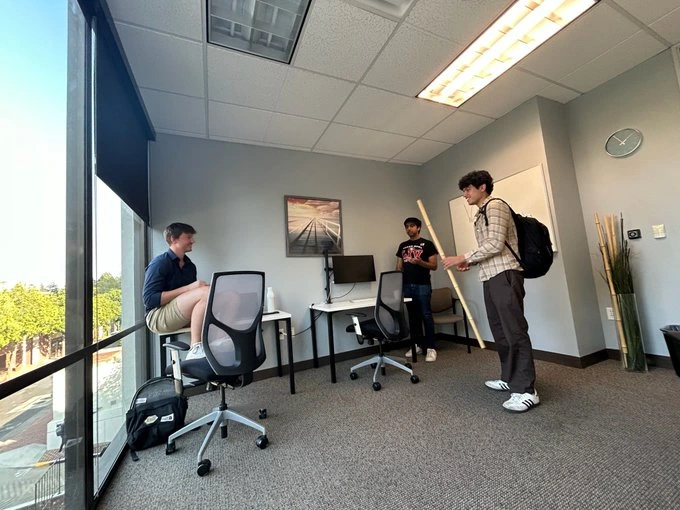

The Mercor co-founders in their first Mercor office, from where they shifted to another location
The numbers speak
Mercor’s early success is evident in its remarkable achievements. The platform’s AI interviewer has already processed over 300,000 job applicants, delivering a scalable and efficient solution to one of the most resource-intensive aspects of recruitment. The company has experienced exponential traction with a “50 percent month-over-month growth rate and has already generated tens of millions in revenue, achieving profitability within its first year,” according to the founders.
This performance has drawn attention from some of the world’s most prominent investors. “In September 2024, we announced our $30m Series A at a $250m valuation led by Benchmark, with participation from General Catalyst, Peter Thiel, Jack Dorsey, Adam D’Angelo, and Larry Summers,” shared Surya on his website. Benchmark is the same venture capital firm that backed Uber. With backing from industry giants Mercor is on its way to become a major disruptor in recruitment technology.
How does Mercor’s AI tools work?
Applicants begin by uploading their resumes and completing a 20-minute video interview conducted by Mercor’s AI. During the interview, roughly half the time focuses on assessing the candidate’s skills, followed by a case study designed to evaluate their problem-solving abilities and subject knowledge.
After the interview, the candidate’s application is matched with all relevant job openings within Mercor’s marketplace. For highly specialized positions, a second, customized AI interview may be conducted to refine the matching process further.
For employers, Mercor offers a streamlined solution, connecting them with qualified candidates quickly and efficiently. The platform supports flexible hiring arrangements, including hourly, part-time, and full-time commitments, allowing businesses to scale their teams as needed. While India serves as Mercor’s largest talent pool, the U.S. closely follows in terms of workforce representation.
For job seekers, Mercor’s AI offers a level playing field, using data-driven insights to identify the best opportunities. By eliminating human bias, the platform ensures a fairer and more accurate recruitment process.
Mercor is also enabling businesses to onboard talent with just a few clicks. This end-to-end solution simplifies what has traditionally been a cumbersome process, ensuring companies can scale efficiently without getting bogged down in administrative tasks.
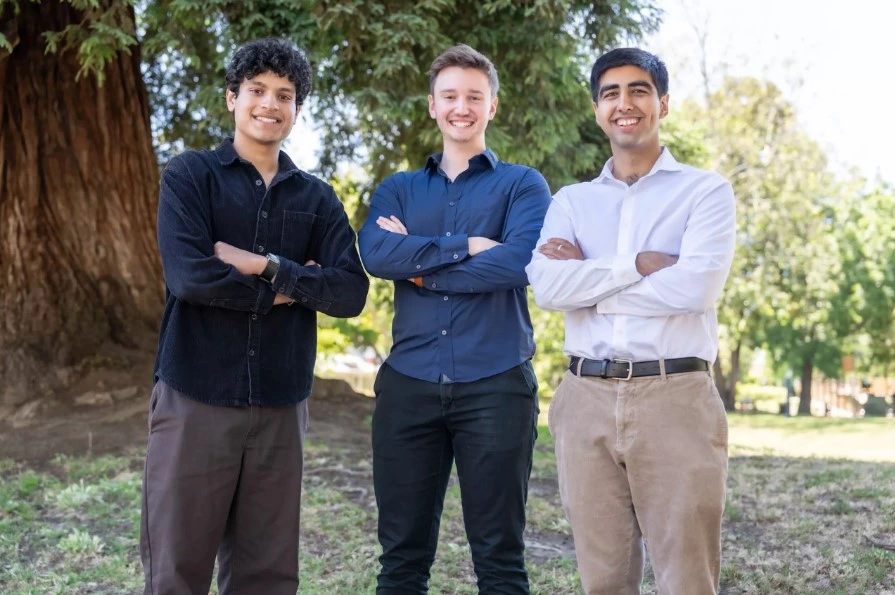

Adarsh, Brendan and Surya (left to right)
The road ahead
With a team of 15 employees, Mercor is lean but mighty, operating with the agility needed to innovate in a competitive market. The founders are committed to expanding their platform’s capabilities, exploring ways to further enhance the recruitment process through AI advancements.
As the global job market continues to evolve, Mercor’s potential is limitless. By addressing inefficiencies in traditional hiring practices and harnessing the power of AI, the startup is positioned to shape the future of work for years to come.
- Discover more fascinating stories

